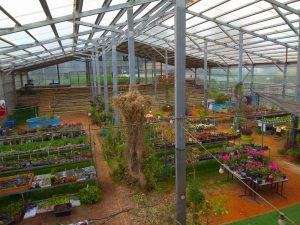No one had it easy during the Covid-19 pandemic, but school principals are among the unsung heroes of the past year. Constantly changing rules and paradigms, transitioning to online learning and deciding whether and how to return to the classroom – all these headaches were theirs.
According to the U.S. Learning Policy Institute and the National Association of Secondary School Principals (NASSP) 42 percent of the principals surveyed this year indicated they were considering leaving their position. It is not hard to understand why.
Dr. Beverly Gribetz sits in her home in Jerusalem and counts herself lucky. “I retired as a high school principal in September 2019, so I dodged all that stress!” Dr. Beverly Gribetz was principal of the highly-respected Evelina de Rothschild-Tehilla High School in Jerusalem from 1998-2019. Prior to moving to Israel, she spent 10 years as Assistant Dean of the Ramaz Upper School in New York and she served as the first Headmistress of their Middle School. In Israel, she served for two years as executive director of Rav Adin Steinsalz’s Mekor Chaim Yeshiva High School, as a consultant to the Education Department of the Jewish Agency and held several other positions at the Pelech Religious Girls’ High School, at the Melton Centre for Jewish Education at Hebrew University, and at Machon Pardes. During her time at Evelina-Tehilla, 20 aspiring principals interned with Beverly through the Avnei Rosha Principals’ course funded by the Israel Ministry of Education and Yad HaNadiv. Beverly was honored as an Alumni Scholar and Educational Innovator by Ramaz, recognizing her contribution to education in Israel and the U.S., and she received the Bonei Zion Prize for Education from Nefesh B’Nefesh.
“I loved being a principal. I loved the everyday interactions and relationships that I had with the children and the teachers, and being able to create and carry out a vision. I saw my role as providing the scaffolding for the teachers to climb up on; I kept building higher so that they would have to grow! Most of all, I loved observing the changes in my students as they matured. I maintain contact with them in order to be inspired by what they have become.”
During the pandemic, many parents turned to her to make sure their schools were doing the right thing. The feelings of insecurity were so powerful that just hearing a calming word from a principal they had trusted helped assuage their fears. Beverly maintains constant contact with the teachers she has worked with over the years, and she has followed carefully the innovations and suggestions for transforming school systems.
“One of the main challenges for schools at the start of the pandemic was to train all their teachers in digital pedagogy, particularly since there are always some teachers who are legitimately resistant to using technology. Schools had to get their teachers set up to teach, which often meant finding those teachers who had experience using technology to help others adapt their teaching style.”
Beverly believes that teachers should mentor teachers and principals should mentor principals. “It’s the old adage that you have to have walked in their shoes to understand the challenges they face. But with principals it’s more than that. Being a school principal is a lonely job surrounded by people clamoring for attention. Everyone looks to you for leadership, but you always end up dealing with the crises first, which means you can lose sight of your other priorities and the overarching vision. There are so many everyday responsibilities that you can forget what direction you are walking in.”
“Peer mentoring is crucial, because you need to bounce ideas off of someone who has the wisdom of experience from having run a school. In the Jewish community it’s particularly important to work with someone outside of your own school, so you can share the issues without worrying about information being shared with your board or your parent body. Another principal will understand what you are dealing with and can bring a fresh perspective to your problems. A good mentor will help the principal to analyze their problem from a new perspective, identify the pressure points within the school, and consider alternative courses of action. Once they have decided on a course of action, the mentor can support the principal throughout the process of implementing the change.”
Beverly understands Jewish schools as complex multi-age communities that comprise not just the children but also teachers and parents, who may span a whole range of ages and lifestyles. As they expand their boundaries and draw students from more diverse communities, they have to try to include all the families in the core vision of the school, and make them feel at home there.
One of the issues schools face is how much space to give to different Jewish outlooks within the school. For example, where there are students from both Ashkenazi and Sephardi backgrounds, should there be several minyanim for Shacharit, so that everyone prays with their community group in the mornings, or should each student be praying with their own grade? “Many schools have grappled with this and similar issues, and the principal has to manage a process of consultation to work out the best solution that fits the school’s vision for morning prayers.”
“Inclusion is a crucial value, because we want to help all of the students to feel comfortable, but we have to balance this with maintaining the core vision of the school. Schools that serve a diverse population have to accommodate many different types of prayer groups, because Jews interpret the Jewish value of prayer in different ways. At the same time, school discipline has to be maintained through some kind of registration system, so that kids don’t take advantage of the availability of different options to skip prayers and turn up late for school.”
“It’s great to work in a high school, because kids can change so much over six years, but it’s important to remember that their parents tend to stay the same. The teenagers want to have different experiences, and schools want to offer them choices, but you sometimes have to think about the implications for the family as a whole.”
Making decisions under pressure can also cause problems. “It’s important to take time to consider and simulate the possible outcomes with a mentor before announcing a change”, advises Beverly. “A school cannot be run as a democracy, but good leadership means always involving the right people in the decision-making process. Mentoring can help principals to consider the best way of bringing those people along with them, by understanding their positions and planning a strategy that includes their perspectives.”
What lessons have schools learned from Covid-19?
“Principals had to deal with so many new issues and make many complex decisions. Many schools set up committees of doctors or of technological experts to help them. We can all benefit from recognizing when we are out of our depth and how to bring in outside experts.
At the same time, it’s important to strike the right balance when involving parents in the running of the school. Every parent thinks they know how a school should work because they were once a student! The principal has to know how to work with parent representatives so that they do not overstep the boundary between supporting and running the school. For example, parents can’t use a committee meeting as a platform for talking about their own child’s teachers.
During Covid, many Principals opened up new channels of communication with their school community. “No one likes uncertainty, so it was important to update teachers, students and parents as the rules and realities were changing. But opening WhatsApp groups created an enormous pressure to respond, as every individual could express their opinion and share unmoderated responses with the group. After Covid, we may want to put this particular genie back in its bottle!”
“Online learning had many drawbacks, but it put the spotlight on teachers. Suddenly parents could listen in during classes. We all discovered new strengths and weaknesses, and I believe that we need to help teachers to refresh their skills as we head back to the classroom. Principals should be working with teachers to help them identify new opportunities, to expand the parameters of their responsibilities, take on new challenges and develop their skills. Principals also need to consider how to enhance their own leadership skills for the post-Covid era, and how to adapt the lessons learned to the world of Jewish schools. An excellent mentor can enable a principal to realize their post-pandemic dreams.”
Dr. Beverly Gribetz offers mentoring to Jewish schools and principals around the world through the World Center for Jewish Education (www.jewisheducation.net)
This article by Roz Lyons was published in the Jerusalem Report Magazine, July 26, 2021


